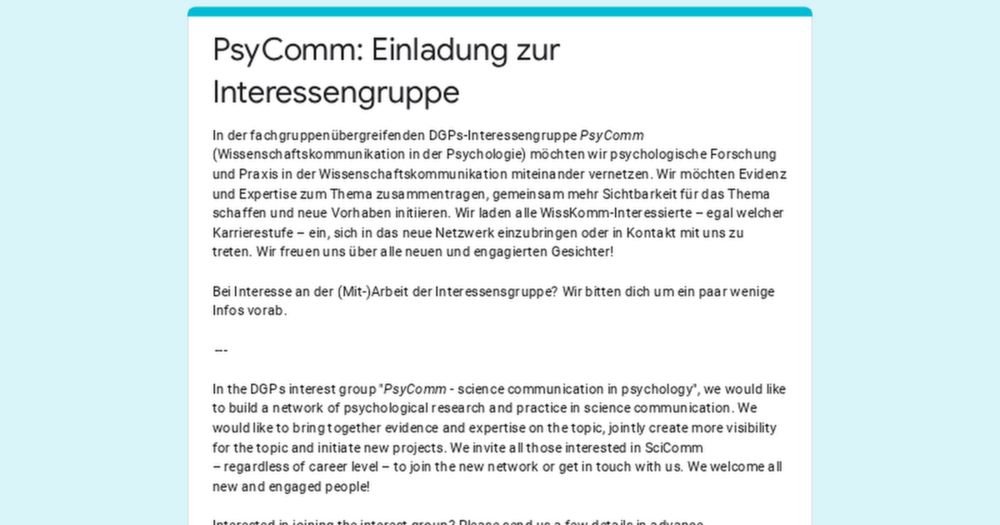Prof. Dr. Louisa Kulke
@loukulke.bsky.social
200 followers
17 following
35 posts
Professor for Developmental Psychology with Educational Psychology at the University of Bremen. Embassador of #OpenScience. Opinions are my own.
Posts
Media
Videos
Starter Packs
Reposted by Prof. Dr. Louisa Kulke
Reposted by Prof. Dr. Louisa Kulke
Hallo #AcademicSky - wir sind PsyComm, die neue Interessengruppe für Wissenschaftskommunikation #WissKomm der @dgps.bsky.social. Wir möchten Wissenschaft und Praxis vernetzen, Evidenz und Expertise zum Thema zusammentragen und neue Vorhaben initiieren. Jetzt mitmachen: forms.gle/DGpav3jCUHCi...

PsyComm: Einladung zur Interessengruppe
In der fachgruppenübergreifenden DGPs-Interessengruppe PsyComm (Wissenschaftskommunikation in der Psychologie) möchten wir psychologische Forschung und Praxis in der Wissenschaftskommunikation miteina...
forms.gle










